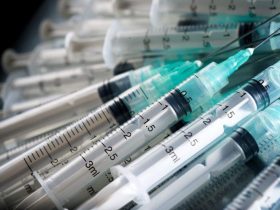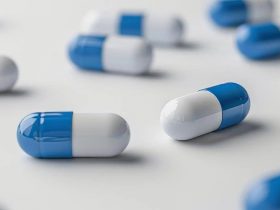Semaglutide and liraglutide also linked to reduction in risks for SUD hospitalization, somatic hospitalizations
By Elana Gotkine HealthDay Reporter
FRIDAY, Nov. 22, 2024 (HealthDay News) — Semaglutide and liraglutide are associated with a reduced risk for hospitalization due to alcohol use disorder (AUD), according to a study published online Nov. 13 in JAMA Psychiatry.
Markku Lähteenvuo, M.D., Ph.D., from the University of Eastern Finland in Kuopio, and colleagues conducted an observational study in Sweden using data from January 2006 to December 2023 to examine whether the risk for hospitalization due to AUD is decreased during use of glucagon-like peptide-1 (GLP-1) receptor agonists versus nonuse in the same individual. The cohort included 227,866 individuals with AUD, who were followed for a median of 8.8 years.
The researchers found that 58.5 percent of the individuals experienced AUD hospitalization. The lowest risks for AUD and substance use disorder (SUD) hospitalization were seen in association with semaglutide use (adjusted hazard ratios, 0.64 and 0.68 for AUD and any SUD, respectively) and liraglutide use (adjusted hazard ratios, 0.72 and 0.78, respectively). A modestly decreased risk was seen in association with use of any AUD medication (adjusted hazard ratio, 0.98). Reductions in the risk for somatic hospitalizations were also seen in association with semaglutide and liraglutide use (adjusted hazard ratios, 0.78 and 0.79, respectively), but there was no association with suicide attempts.
“AUDs and SUDs are undertreated pharmacologically, despite the availability of effective treatments,” the authors write. “GLP-1 agonists, and especially semaglutide and liraglutide, may be effective in the treatment of AUD.”
Several authors disclosed ties to the pharmaceutical industry.
Copyright © 2024 HealthDay. All rights reserved.







